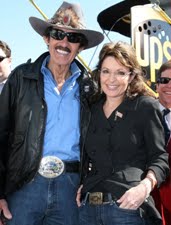I bought a big, fat book a couple of years ago that I haven't cracked since I brought it home. Over 1,000 pages long. The Christian Life and Character of the Civil Institutions of the United States, by Benjamin Morris. Originally printed in 1864. It kind of skips all over the place, there's no real flow. It's mostly a collection of letters and quotes and speeches on topics, so I just kept it for reference rather than read it through.
For some random reason, I picked it up today and let it fall open. Wasn't really looking for anything. What it fell open to was rather fascinating.
By Charles Francis Adams, the son of John Quincy Adams, page 477:
"It is of great importance not only to understand the nature of the superiority of the individuals who have made themselves a name above their fellow-beings, but to estimate the degree in which the excellence for which they were distinguished was shared by these among whom they lived.
"Inattention to this duty might present Patrick Henry and James Otis, Washington, Jefferson, and Samuel Adams, as the causes of the American Revolution, which they were not.
"There was a moral principle in the field, to the power of which a great majority of the whole population of the colonies, whether male or female, old or young, had been long and habitually trained to do homage. The individuals named, with the rest of their celebrated associates, were not the originators, but the spokesmen, of the general opinion, and instruments for its adaptation to existing events.
"Whether fighting in the field or deliberating in the senate, their strength against Great Britain was not that of numbers, nor of wealth, nor of genius; but it drew its nourishment from the sentiments that pervaded the dwellings of the entire population."
He then goes on to say that it was due to what was taught in the home, etc...
We should strive to be a population that will produce leaders such as the Founders.



















No comments:
Post a Comment